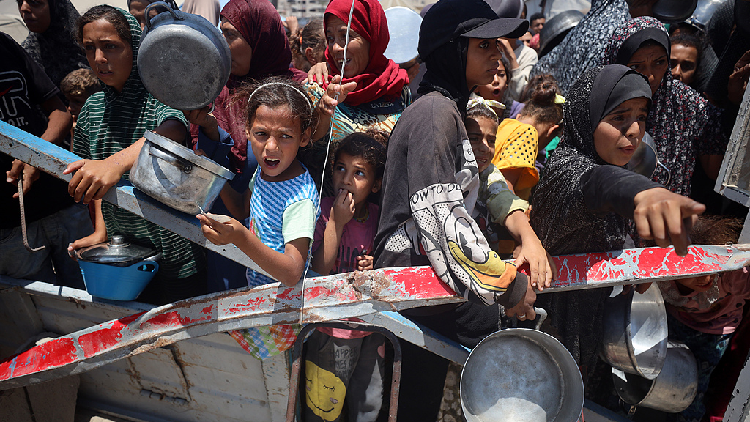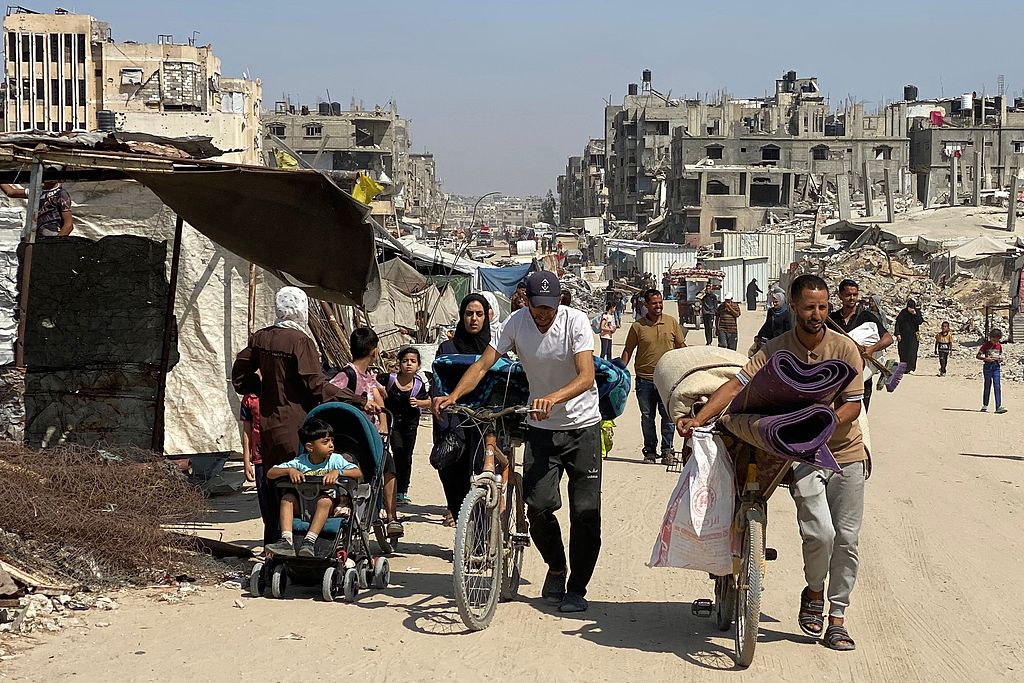UN Condemns U.S.-Led Gaza Food Aid Plan, Warning of Potential Humanitarian Crisis
Dozens of Gazans have died in recent days while queuing at new militarized aid centers amid mounting humanitarian crisis.


A newly implemented aid scheme operating under American management and with Israeli approval has come under severe criticism from the United Nations, which characterized the approach as a "recipe for disaster" following a rising death toll at its food distribution sites in Gaza. In the past three days alone, multiple fatalities have been reported among Palestinians queueing for food at the heavily fortified and militarized distribution points administered by the Gaza Humanitarian Foundation (GHF).
The GHF, launched last week, has set up a handful of secured aid sites, requiring desperate Gazans to travel—often through active conflict zones or areas previously ordered evacuated—in order to access basic supplies. Entry to these points involves navigating barbed wire barriers and compliance with directions from armed contractors whose oversight and accountability remain unclear.
Stephane Dujarric, chief spokesman for the UN Secretary-General, expressed deep concern over the system’s design, warning that forcing civilians to risk their lives for aid, only to face violence or even death, is wholly unacceptable. “The secretary-general condemns the loss of lives and injuries of Palestinians seeking aid in Gaza. It is unacceptable. Civilians are risking—and in several instances losing—their lives just trying to get food.” Dujarric emphasized the call for an immediate and independent investigation into these deadly incidents and stressed that those responsible must be held accountable.
Highlighting the dire circumstances, Dujarric added: “The basic needs of the population in Gaza are enormous and are not being met.” He reminded that Israel, as the occupying power, has specific obligations under international humanitarian law to ensure unfettered delivery and distribution of humanitarian assistance for all civilians.
As famine looms, the UN Security Council is poised to vote on a resolution demanding a comprehensive ceasefire between Israel and Hamas, coupled with unrestricted humanitarian access throughout the Gaza Strip. The draft text circulating ahead of the vote also calls for the release of all hostages and insists on the immediate removal of barriers hindering aid delivery. “The time to act has already passed. It is our historical responsibility not to remain silent,” commented Slovenia’s UN Ambassador Samuel Zbogar.
According to the GHF, over seven million meals have been handed out since operations began. However, the organization announced it would suspend food distributions on Wednesday, urging Israel to implement stronger measures for civilian safety beyond the immediate perimeter of its sites. Meanwhile, major humanitarian agencies have declined to partner with the GHF, citing concerns over neutrality and the increased militarization of aid—a process now relying on private American security and logistics contractors rather than impartial, recognized aid organizations.

'A drop in the ocean'
While humanitarian convoys have resumed following the easing of an 80-day blockade, the United Nations and aid partners cite massive logistical bottlenecks, especially at the Kerem Shalom/Karem Abu Salem crossing, which serves as the sole entry point for supplies. The UN Office for the Coordination of Humanitarian Affairs (OCHA) described current levels of assistance as “a drop in the ocean,” noting that the limited volume of aid fails to address the overwhelming scale of need.
“We have enough supplies lined up and ready, close to Gaza,” OCHA stated, “but only limited amounts are reaching the people who need them, and that’s because of conditions on the ground.” According to OCHA, since May 17, just half of all pre-cleared shipments have made it through the final Israeli checks to the Palestinian side. Only about 370 truckloads—including flour, medical supplies, and nutrition support—have been moved closer to civilian populations within Gaza, falling far short of what is required.
Not only do Israeli authorities maintain tight controls over both entry and internal movement of aid, but humanitarian operations inside Gaza regularly require passage through dangerous, militarized areas still exposed to ongoing hostilities. OCHA reported that on Monday alone, 10 out of 13 requests for safe passage or operational clearances—including for vital operations such as fuel relocations and water trucking—were denied by Israeli officials.
These compounded restrictions are having devastating consequences for Gaza’s civilian population. Aid groups note a sharp increase in child labor, early marriage, and family separation—issues directly linked to mounting hunger, mass displacement, and economic distress. Observers warn that unless drastic action is taken to enable consistent, safe, and neutral distribution of humanitarian relief, Gaza’s unfolding crisis will continue to deteriorate at an alarming pace.




